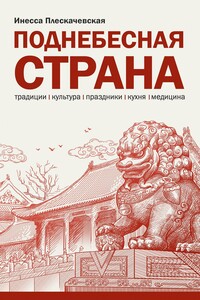But what to do with this letter to which I attached so much importance? Something impelled me not to speak of it to my family. But who else was there?
In my perplexity I did an utterly foolish thing. I put my whole confidence in a man's word. There was, serving at a nearby fortress, a Major-General von Dassel, who was in the habit of coming to our house quite regularly. To him I went, and under pledge of silence I told him my story. Of course, he broke the pledge and left immediately for Berlin. All doubts, if I had any, as to the importance of the document, vanished with him. And if I had any misgivings concerning my own importance they quickly vanished, too. Back from Berlin, with Major- General von Dassel came an agent of the Chancellor. He did not come to our house; instead von Dassel sent for me to go to his headquarters in the fortress. I met there a solemn frockcoated personage who, so he said, had come down from Berlin especially to see me. Imagine my elation! I was in my element; what I had hoped for had at last happened. The pages of Richelieu and of my secret histories were coming true. Another man and I were to lock our wits in a fight to the finish that pleasure I promised myself. He was a worthy opponent, an official, a professional intriguer. As I looked into his serious, bearded face, I built romances about him.
The agent of the Chancellor wanted my document and my pledge to keep silent about its contents. Through sheer love of combat, I refused him on both points. He tried persuasion and reason. I was adamant. He tried cajolery.
"It is plain," he said, in a voice that was caressingly agreeable, "that you are an extremely clever young man. I have never before met your like--that is, at your age. A great career will be possible to such a young man if only he shows himself eager to serve his Government, eager to meet the wishes of his Chancellor."
Of course, I was delighted with this flattery, which I felt was entirely deserved. I began to believe that I was a person of importance. I became stubborn which always has been one of my best and worst traits. I saw that the gentleman in the frock-coat was becoming angry; his serious eyes flashed. Apparently much against his will, he tried threats; he suavely pointed out that if I persisted in my resolve not to surrender the document, destruction yawned at my feet. The threats touched off the fuse of my romanticism. I felt I was leading the life of intrigue of which I had read.
"If you will wait here," I told him, "I shall go home and get the document for you."
The Chancellor's representative stroked his beard, deliberated a moment and seemed uncertain.
"Oh, the Junge will come back all right," put in Major-General von Dassel. But the boy did not come back. My family had always been excessively liberal with money, and I had enough in my own little "war chest" to buy a railway ticket, and a considerable amount besides. So I promptly ran off to Paris; and to this day I don't know how long the gentleman in the frock-coat waited for me in von Dassel's office.
The terrors and thrills and delight of that panic-stricken flight still make me smile. No peril I have since been through was half as exciting. . . . Berlin! . . . Koln! . . . Brussels! It was a keen race against arrest. I was happily frightened, much as a colt is when it shies at its own shadow. Although I was in long trousers and looked years older than I was, I had not sense enough to see the affair in its true light --a foolish escapade which was quite certain to have disagreeable consequences. And so I fled from Berlin to Paris.
From Paris I fled too. There, any circumstance struck my fevered imagination as being suspicious. After a day in the French capital, I scurried south to Nice and from Nice to Monte Carlo. Precocious youngster, indeed, for there I had my first experience with that favoured figure of the novelist, the woman secret agent! No novelist, I venture to say, would ever have picked her out of the Riviera crowd as being what she was. She wore no air of mystery; and though attractive enough in a quiet way, she was very far from the siren type in looks or manners. The friendliness that she, a woman of the mid-thirties, showed a lonely boy was perfectly natural. I should never have guessed her to be an agent of the Wilhelmstrasse had she not chosen to let me know it. Of course, the moment she spoke to me of "my document," I knew she had made my acquaintance with a purpose. If the dear old frock-coated agent of the Chancellor had been asleep, the telegraph wires from Berlin to Paris and Nice and Monte Carlo had been quite awake.


